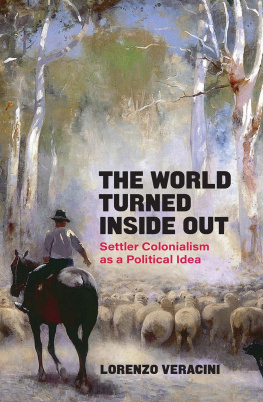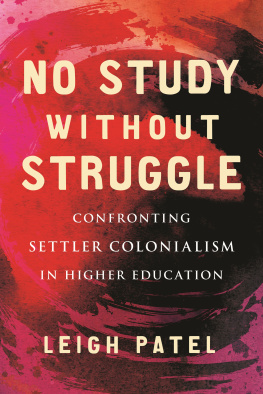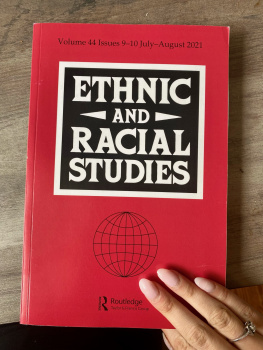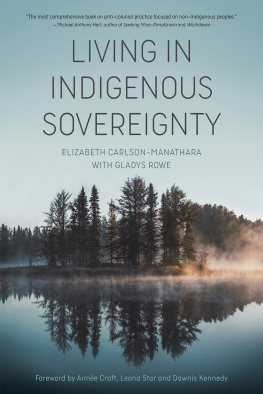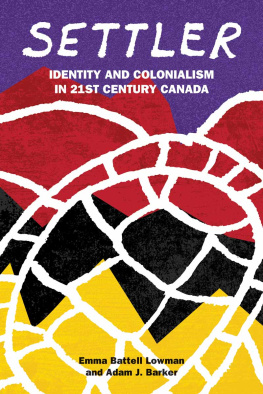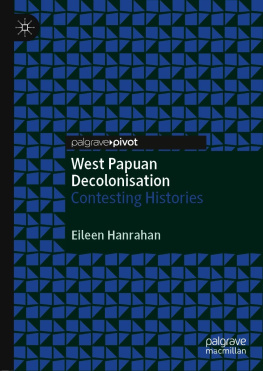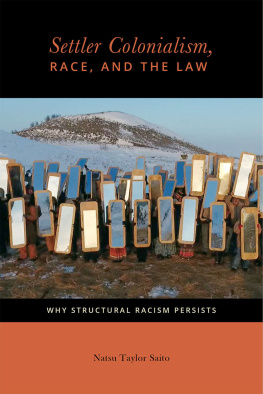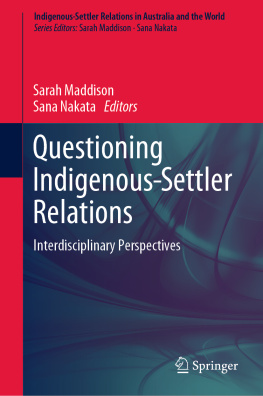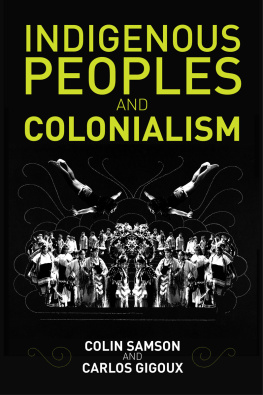Contents
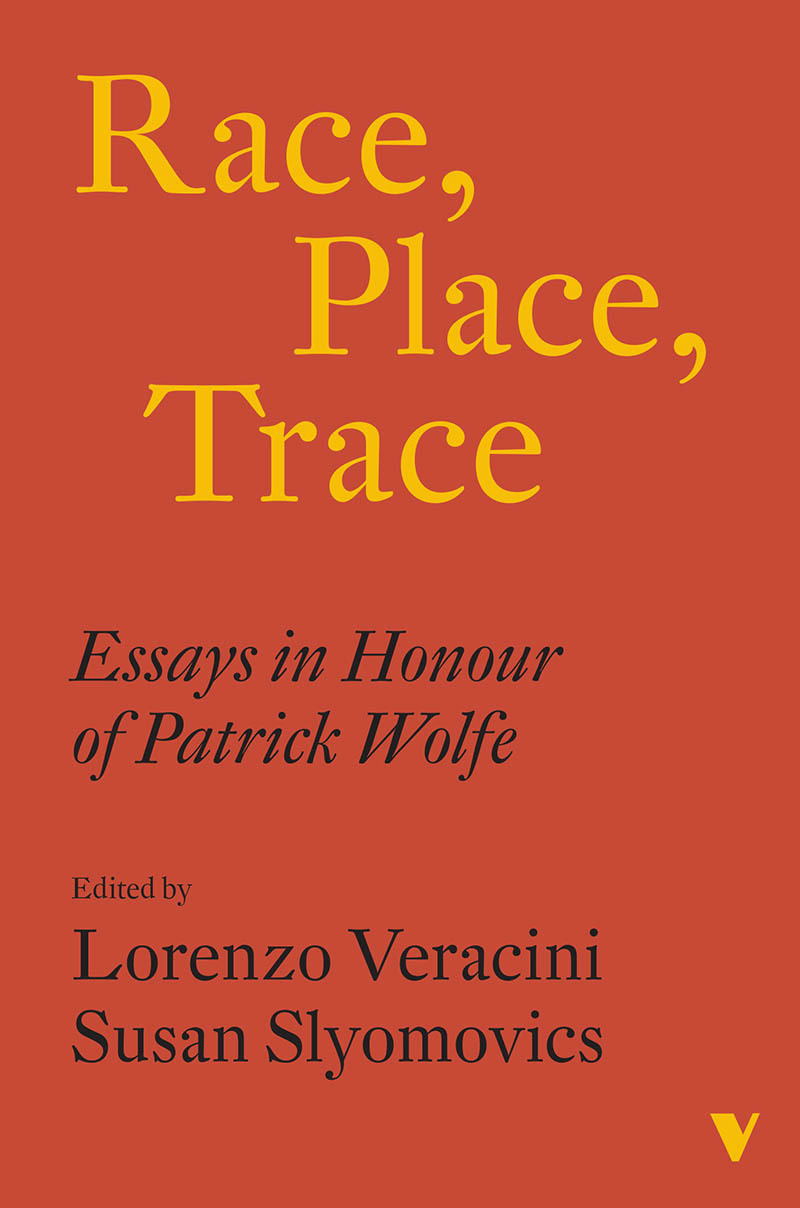
Race, Place, Trace
Sung Eun Choi is an Associate Professor of History at Bentley University. She holds a doctorate from the University of California, Los Angeles and was a Fellow at the Institute of Advanced Studies in Nantes, France. She is the author of Decolonization and the French of Algeria: Bringing the Settler Colony Home (Palgrave 2016). She has taught at Pomona College and Washington State University.
Gabriel Piterberg specialises on the history of the Ottoman Empire and the Mediterranean in the early modern period, and on modern themes such as colonialism, Zionism, and Palestine/Israel. He has published articles in the New Left Review and the London Review of Books .
Lynette Russell, AM is one of Australias leading historians. She has authored or edited fifteen books, and numerous journal collections. She is an Australian Research Council Laureate Fellow and Professor of Indigenous Studies at Monash University, and is the only Australian scholar to be elected to both the Royal Historical Society (London) and the Royal Anthropological Institute (London).
Susan Slyomovics is Distinguished Professor of Anthropology and Near Eastern Languages and Cultures at the University of California, Los Angeles. She is also author of The Object of Memory: Arab and Jew Narrate the Palestinian Village and The Performance of Human Rights in Morocco , and co-editor of Women and Power in the Middle East , all available from the University of Pennsylvania Press.
Lorenzo Veracini is Associate Professor of History at Swinburne University of Technology, Melbourne. His research focuses on the comparative history of colonial systems and settler colonialism as a mode of domination. He has authored Israel and Settler Society (2006), Settler Colonialism: A Theoretical Overview (2010), The Settler Colonial Present (2015), and The World Turned Inside Out: Settler Colonialism as a Political Idea (2021). Lorenzo co-edited TheRoutledge Handbook of the History of Settler Colonialism (2016), manages the settler colonial studies blog, and is Founding Editor of Settler Colonial Studies.
Race, Place, Trace
Essays in Honour of
Patrick Wolfe
Edited by Lorenzo Veracini
and Susan Slyomovics

Funding for Lorenzo Veracinis visiting professorship at the University of California Los Angeles came from the universitys International Institute. UCLAs Center for Near Eastern Studies hosted the Conference on Race, Indigeneity, and Settler Colonialism co-organized by Lorenzo Veracini and Susan Slyomovics that convened scholars to honor Patrick Wolfe on March 910, 2017. Publication of this volume is supported by a UCLA Faculty Research Grant.
First published by Verso 2022
The collection Verso 2022
The contributions The contributors 2022
All rights reserved
The moral rights of the author have been asserted
1 3 5 7 9 10 8 6 4 2
Verso
UK: 6 Meard Street, London W1F 0EG
US: 20 Jay Street, Suite 1010, Brooklyn, NY 11201
versobooks.com
Verso is the imprint of New Left Books
ISBN-13: 978-1-83976-616-9
ISBN-13: 978-1-83976-617-6 (US EBK)
ISBN-13: 978-1-83976-615-2 (UK EBK)
British Library Cataloguing in Publication Data
A catalogue record for this book is available from the British Library
Library of Congress Cataloging-in-Publication Data
A catalog record for this book is available from the Library of Congress
Typeset in Minion Pro by MJ&N Gavan, Truro, Cornwall
Printed and bound by CPI Group (UK) Ltd, Croydon, CR0 4YY
Contents
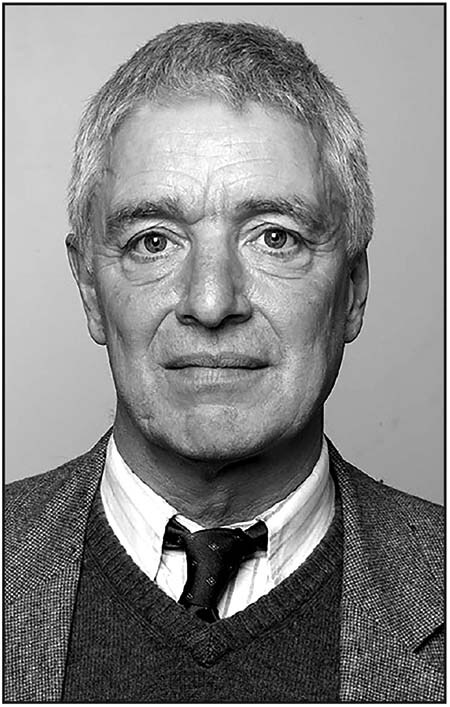
Patrick Wolfe (19492016) spoke to historians, anthropologists, and historians of anthropology. And he spoke to and wrote about Indigenous peoples speaking to their colonizers about colonial territorial expansion and dispossession. He remains the most important theorist of settler colonialism a form of colonialism premised on land over labour. Responding to the development and widespread adoption of postcolonial theory in the 1990s, Wolfe gave priority to settler colonialisms operation through a logic of elimination: the settlers come to stay and to permanently displace the Indigenous collectives and polities. His work also emphasized that the logic of elimination could take many forms massacres, removal, and assimilation and that therefore there was a profound continuity linking the histories of dispossession and settlement, the ongoing repression of Indigenous communities, and their agency and resistance. Settler colonialism was a current affair for Patrick Wolfe; understanding and addressing its specific structures of inequality was urgent and necessary. Moreover, his comparative analysis linked together disparate settler societies in North America, Australasia, South Africa, Israel/Palestine, Brazil, India, and more.
Throughout his academic career, Patrick Wolfe wrote and lectured widely without a stable university position. He conducted his writing life balanced on the cusp of two technologies. He tapped away on his computer, diligently assuring his machines uncompromised state by refusing physical connection to the internet what hackers call a secure air-gap. At the same time, he maintained boxes of three-by-five notecards, each white paper square handwritten with its respective bibliographical citation alphabetized. Nonetheless, both alternative systems of scholarly storage and production were incinerated in the 2009 bushfires that destroyed his home near Healesville in Victoria, Australia. Eventually, Patrick managed to reconstitute the manuscript of Traces of History: Elementary Structures of Race. There was, however, no way to salvage many of the missing footnotes, which brings to mind the following observation from historian Anthony Grafton:
Like the toilet, the footnote enables one to deal with ugly tasks in private; like the toilet, it is tucked genteelly away often, in recent years, not even at the bottom of the page but at the end of the book. Out of sight, and even out of mind, seems exactly where so banal a device belongs. The footnotes ubiquity makes it invisible Like a sewer, the footnote is essential to civilized historical life; like a sewer, it seems a poor subject for civil conversation, and attracts attention, for the most part, when it malfunctions.
While environmental disaster forced Wolfe to go to print with minimal footnotes, there are echoes of an earlier, more famous writing feat by Erich Auerbach. An Ashkenazi Jew like Wolfe (who was also of Irish origins), Auerbach fled Nazi-dominated Europe to Istanbul where he produced without a single footnote his masterpiece, Mimesis: The Representation of Reality in Western Literature . According to an interview with Leo Spitzer another Jewish scholar, who had preceded Auerbach in flight to Istanbul the scholar who is bookless, beset by conflagrations from humans and nature, makes a virtue of having no footnotes:
Unfortunately there were almost no books. I finally asked the dean about this shortage. He replied simply, We dont bother with books. They burn. I later realized that there was some justice in his view, for most Istanbul buildings were wooden and the fire department was hopelessly disorganized.



